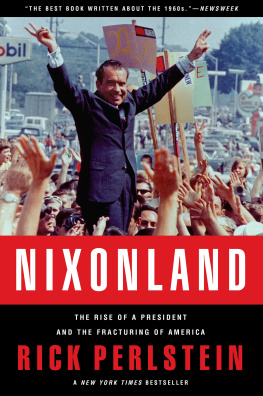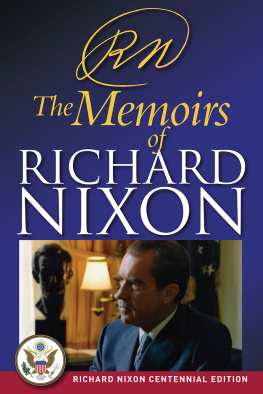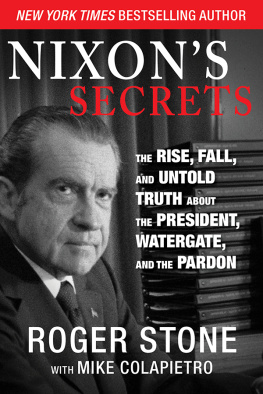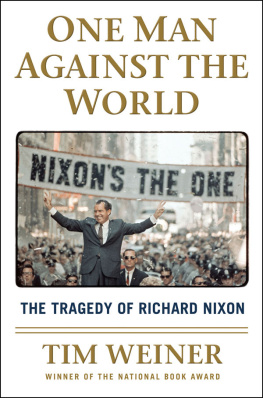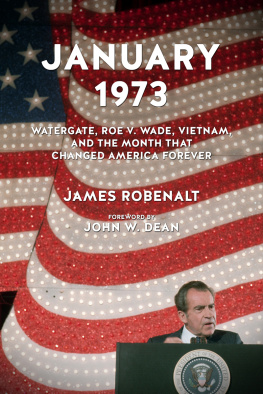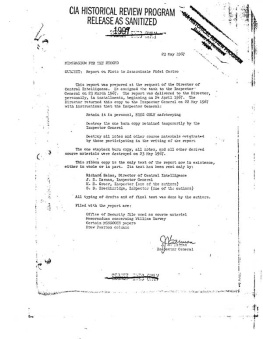Thank you for downloading this Simon & Schuster eBook.
Join our mailing list and get updates on new releases, deals, bonus content and other great books from Simon & Schuster.
C LICK H ERE T O S IGN U P
or visit us online to sign up at
eBookNews.SimonandSchuster.com
We hope you enjoyed reading this Simon & Schuster eBook.
Join our mailing list and get updates on new releases, deals, bonus content and other great books from Simon & Schuster.
C LICK H ERE T O S IGN U P
or visit us online to sign up at
eBookNews.SimonandSchuster.com
CONTENTS
To the memory of my father, Jerry Perlstein
If the people believe theres an imaginary river out there, you dont tell them theres no river there. You build an imaginary bridge over the imaginary river.
ADVICE TO RICHARD NIXON FROM NIKITA KHRUSHCHEV
PREFACE
THIS IS A BOOK ABOUT how Ronald Reagan came within a hairsbreadth of becoming the 1976 Republican nominee for president. But it is also about much more. In the years between 1973 and 1976, America suffered more wounds to its ideal of itself than at just about any other time in its history. First in January 1973, when Richard Nixon declared Americas role in the Vietnam War over after some eight years (if you count it from the first major air strikes and Marine landings in 1965) or nine years (if you count it from the congressional authorization that followed the Gulf of Tonkin incident in 1964) or twelve years (if you count the first major infusion of fifteen thousand U.S. military advisors in 1961) of fighting. Some 58,000 Americans dead, $699 billion expended in American treasure: Nixon called this peace with honor, but that just obscured the fact that America had lost its first war. Then, almost immediately, televised hearings on the complex of presidential abuses known as Watergate revealed the men entrusted with the White House as little better, or possibly worse, than common criminals, in what a senator called a national funeral that just goes on day after day. Then in October came the Arab oil embargoand suddenly Americans learned overnight that the commodity that underpinned their lifestyle was vulnerable to shocks, and the worlds mightiest economy could be held hostage by some mysterious cabal of Third World sheikhs.
This list omits a dozen smaller traumas in between. (One of my favorites, lost to everyday historical memory, was the near doubling of meat prices in the spring of 1973, when the presidents consumer advisor went on TV and informed viewers that liver, kidney, brains, and heart can be made into gourmet meals with seasoning, imagination, and more cooking time.) In the next few years the traumas continued, compounding: The end of a presidency, accompanied by fears Richard Nixon might seek to hold on to his office by force of arms. Inflation such as America had never known during peacetime. A recession that saw hundreds of thousands of blue-collar workers idled during Christmastime; crime at a volume and ghastliness greater, according to one observer, than at any time since the fifteenth century. Senate and House hearings on the Central Intelligence Agency that accused American presidents since Dwight Eisenhower of commanding squads of lawless assassins.
With these traumas emerged a new sort of American politicsa stark discourse of reckoning. What kind of nation were we to suffer such humiliations, so suddenly, so unceasingly, so unexpectedly? A few pages hence, you will read these words from one expert: For the first time, Americans have had at least a partial loss in the fundamental belief in ourselves. Weve always believed we were the new men, the new people, the new society. The last best hope on earth, in Lincolns terms. For the first time, weve really begun to doubt it. And that was only February 1973. By 1976, a presidential year, such observations would become so routine that when the nation geared up for a massive celebration of its Bicentennial, it was common for editorialists and columnists to question whether America deserved to hold a birthday party at alland whether the party could come off without massive bloodshed, given that there had been eighty-nine bombings attributed to terrorism in 1975. The liberals at the New Republic reflected upon the occasion of the most harrowing 1975 traumathe military collapse of our ally South Vietnam, the nation on behalf of which we had expended those thousands of lives and billions of dollarsthat [i]f the Bicentennial helps us focus on the contrast between our idealism and our crimes, so much the better.
The most ambitious politicians endeavored to speak to this new national mood. An entire class of themWatergate babieswere swept into Congress in 1975, pledging thoroughgoing reform of Americas broken institutions. And nearly alone among ambitious politicians, Ronald Reagan took a different road.
RETURNING TO THE NATIONS ATTENTION toward the end of his second term as California governor, as pundits began speculating about which Republican might succeed Richard Nixon (and then which ones might succeed his replacement, Gerald Ford), Reagan, whenever he was asked about Watergate, insisted it said nothing important about the American character at all. Asked about Vietnam, hed say the only dishonor was that America had not expended enough violencethat the greatest immorality is to ask young men to fight or die for my country if its not a cause we are willing to win. One of the quotes he liked to repeat in those years came from Pope Pius XII, writing in Colliers magazine in 1945, when the United States was on top of the world: The American people have a genius for great and unselfish deeds. Into the hands of America, God has placed the destiny of an afflicted mankind.
When Reagan began getting attention for talking this way, in Americas season of melancholy, Washingtons touts cited him only to dismiss him. No one who called the Watergate burglars well-meaning individuals committed to the reelection of the President... not criminals at heart, as Reagan had in the spring of 1973, could be taken seriously as a political comer. But a central theme of my previous two books chronicling conservatisms ascendency in American politics has been the myopia of pundits, who so frequently fail to notice the very cultural ground shifting beneath their feet. In fact, at every turn in Americas reckoning with its apparent decline, there were always dissenting voices.
They said things like: Richard Nixon just couldnt be a bad guy. And that America just couldnt be surrendering its role as Gods chosen nation: not possible. At first such voices sounded mainly in the interstices of Americas political discoursein letters to the editor; among right-wing institution builders whose industriousness exploiting the cultural confusions of the 1970s was being largely ignored by the guardians of polite opinion; in conservative churches whose pews grew more crowded even as experts insisted religious belief was in radical decline. (Christians must accept being a definite minority for the time being, one professor told a reporter for a widely republished wire story in 1976.) But these voices were moving from the margins to the center.
This was related to what Ronald Reagan was accomplishing politically. But things shifted independently of him, too. Nations Hunger to Feel Good Erupts in Fever of Patriotism, ran one wire service headline about the Bicentennial celebration on July 4, 1976. The keynote of articles like this, which were common, was surprise surprise that it wasnt so hard to unapologetically celebrate America, after all. The feeling of the day sort of crept up on many of us, took us by surprise, as Elizabeth Drew, Washingtons most sure-footed chronicler of the passing political scene and certainly no conservative herself, wrote in her own article about that special day. There was a spirit to it that could not have been anticipated. For those of us who had been in despair about this Bicentennial Fourth of July, who feared the worst, the surprise was a very pleasing one.
Next page

